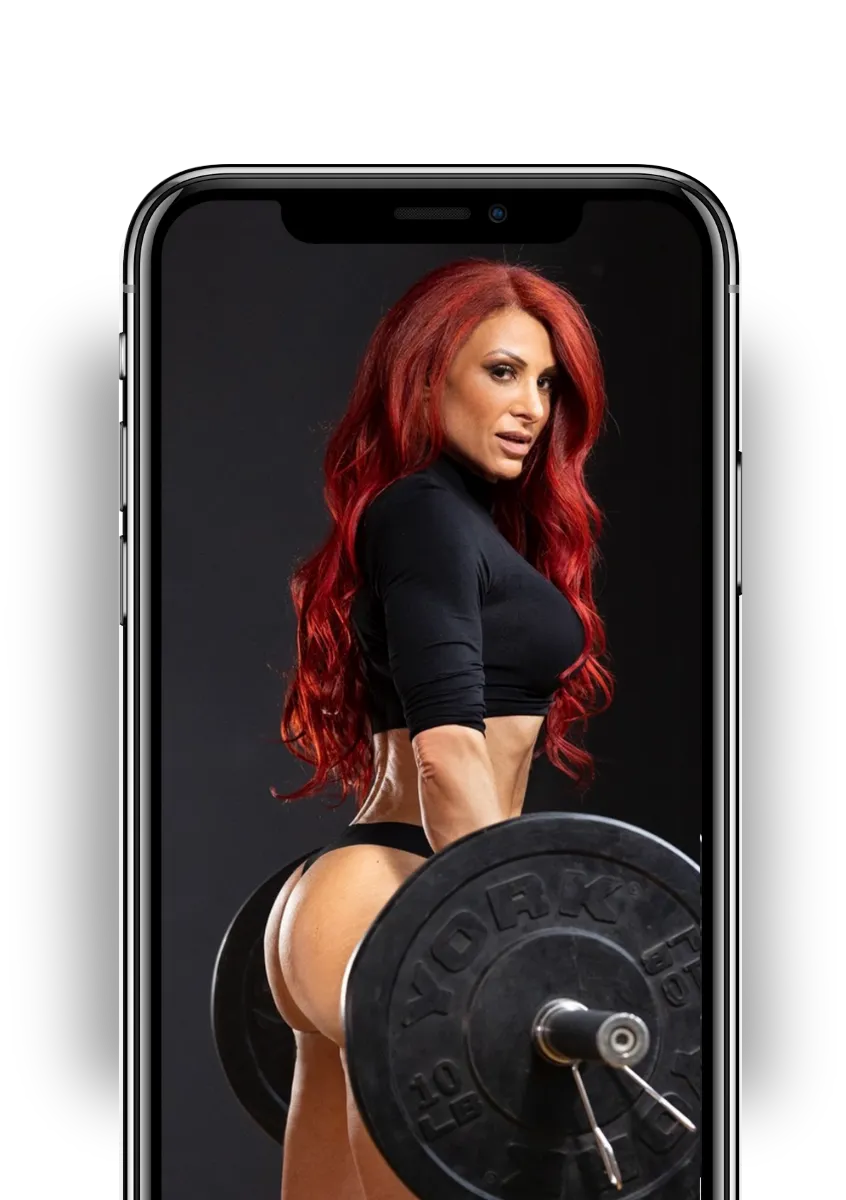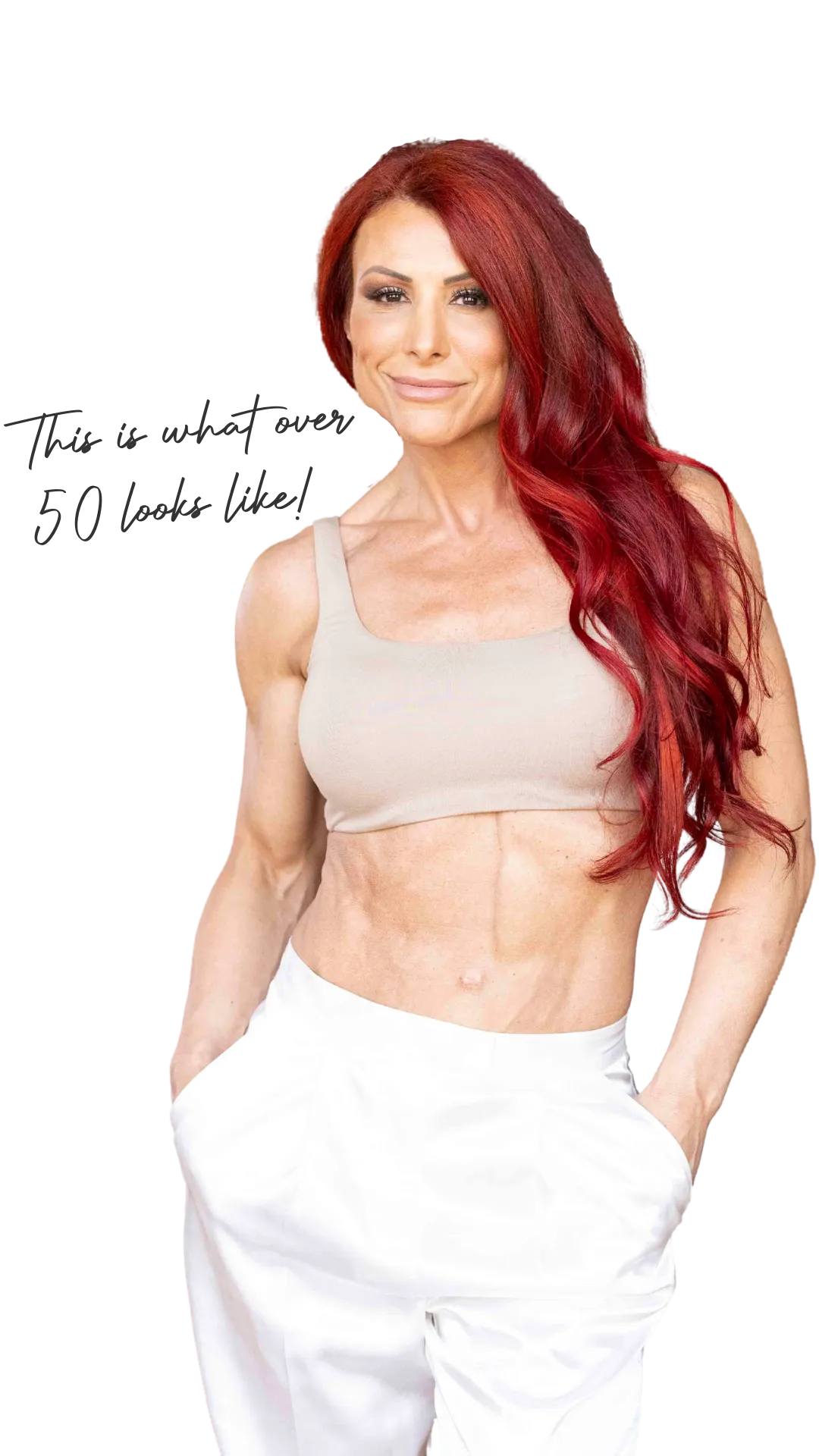
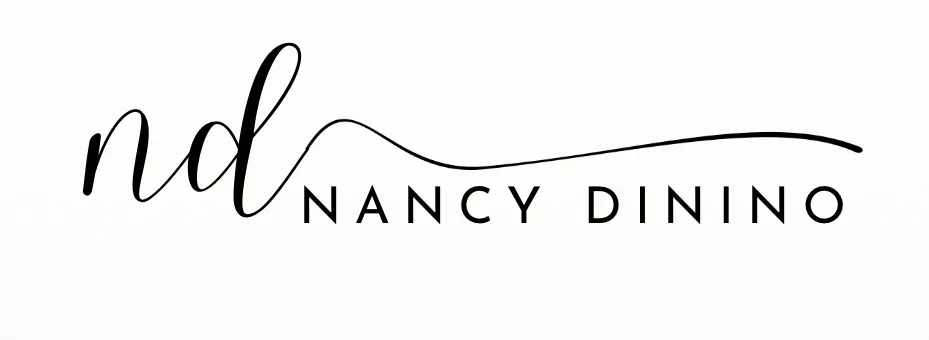
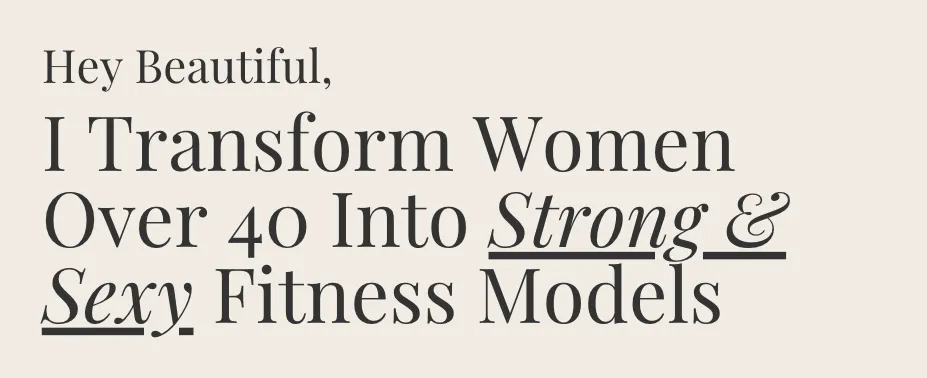
AS SEEN IN







Where dedicated women come to rediscover their strength, their femininity, and their love for fitness. Aging does not define us, we defy aging by defining our bodies. Welcome to your strong, sexy pathway after 40. Here we understand that what you did in your 20s to get fit will not help you after 40 to get fit. Using experience and science we have discovered the fastest and most efficient way to transform your body to look and feel better after 40 then you did in your 20s.

Join 5,000+ getting MOTIVATED every Sunday morning while reading The Becoming You Newsletter (you’ll learn a bit about fitness after 40, nutrition that affects hormones, up-to-date life, and special offers too.)

Hi, I'm Nancy
Hey there! I'm Nancy Di Nino your dedicated Women's Fitness Coach, here to ignite your strength and sex appeal. With my high-energy approach and unwavering belief in your potential, I'll guide you through every step of your transformation journey. Let's turn your dreams into reality and unleash your inner powerhouse. Join me today and let's soar to new heights of success together!

With a contagious enthusiasm and unwavering passion, I am the go-to coach for aspiring and established strong and sexy bodies alike. My high-energy approach and dynamic coaching style empower individuals to unlock their full potential and turn their dream bodies into reality.

Nancy is a former professional Fitness Competitor with 20+ years of experience, a certified Clinical Weight Loss Practitioner and certified in Advanced Nutrition for Fat Loss Strategies and a Personal Trainer for over 30 years.

She has coached thousands of people, including gym novices and professional competitors, and now specializes in helping women of all body types reach their health and fitness goals by focusing on female metabolism, gut, and hormone health.
Recognized by Forbes Magazine, Apple News and one of Canada’s Top Trainers she has also been features in Oxygen, Muscle & Fitness Hers and Iron Man Magazine.
She has also hosted media events, including The Arnold Schwarzenegger Sports Weekend.
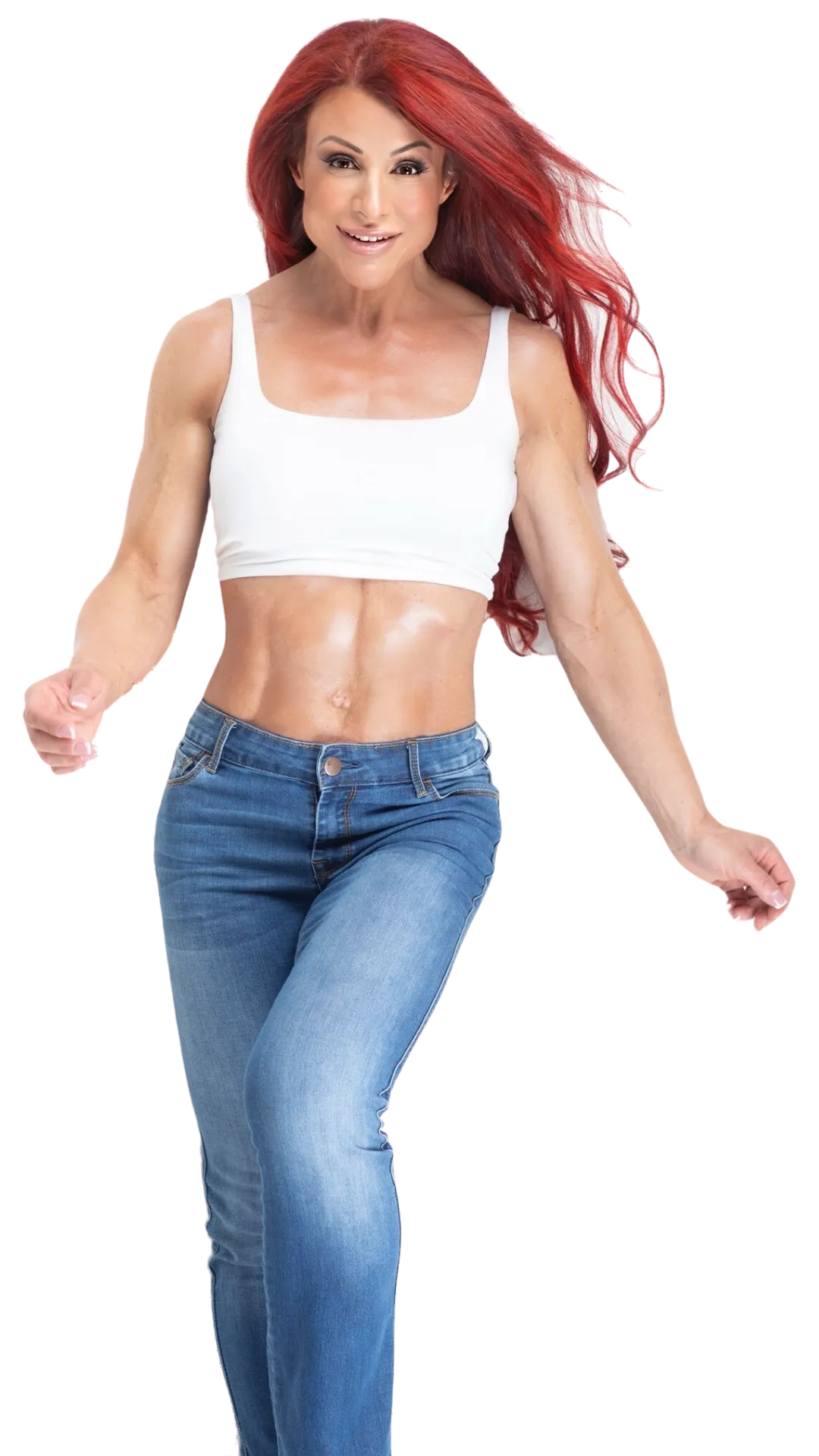
In my 20s, I was insecure, cared what others thought of me and wanted to look to ‘others’ for approval... In my 30s, I spent years having a bad relationship with food and body dysmorphia. Despite winning fitness competitions, I was miserable on the inside from the calorie restriction, which led to binge eating, depression and isolating myself from social activities.
But when I finally leveled up to return to my lean, strong, confident self, I was hit with another challenge: The perimenopause season got me. How I was eating and training wasn’t working for me - I started to freak out, thinking I was slowly aging...
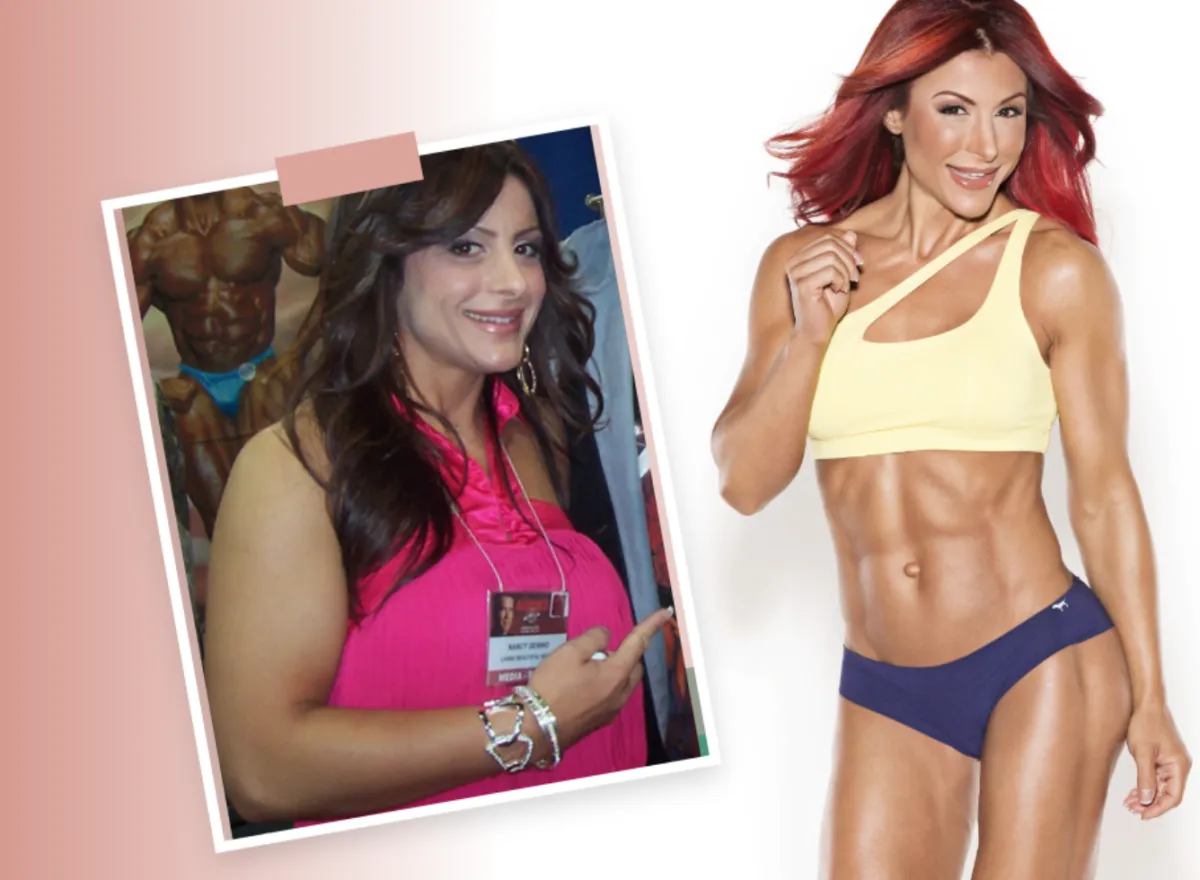
But this was the “aha” moment I needed to regain control of my life and not give up on myself.
After 40, I became obsessed with learning about female metabolism and hormones and how vital muscle is to keep living. STRONG & SEXY for the rest of my life. Muscle is anti-aging.
And that is why I am on a mission to impact women 40+ (yes, it starts in mid-30s) to look and feel better than they did in their 20s.
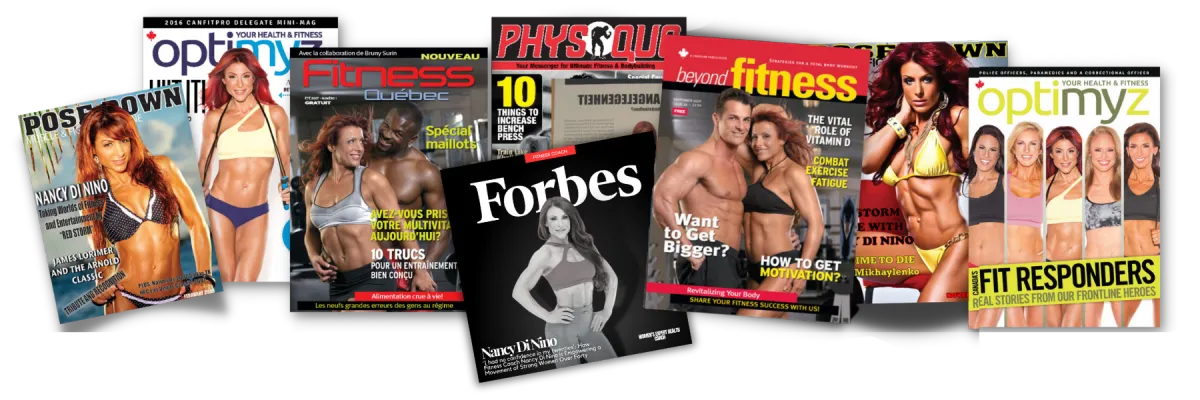

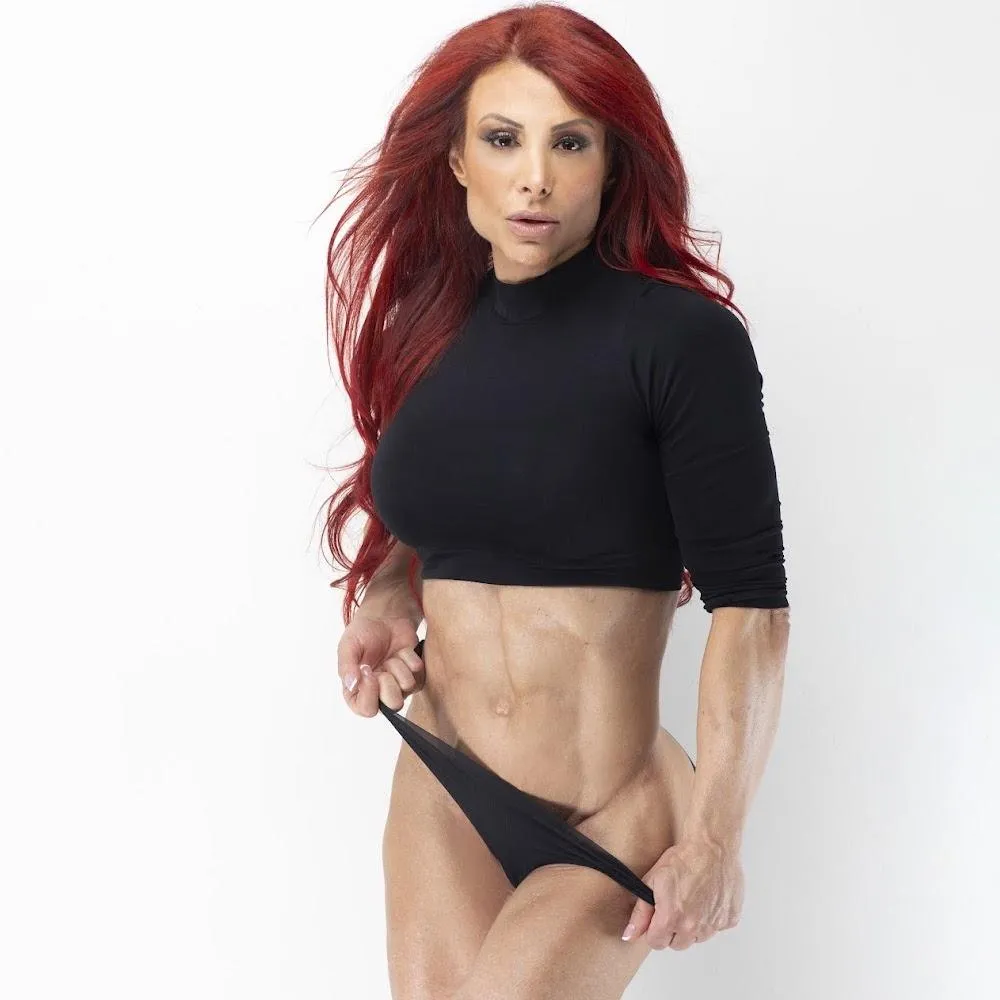
Midlife Muscle Makeover
A 21-day progress-proven program that will jump-start your transformation. This is for the women who have the motivation to transform themselves, and just need a plan to follow. We got you covered. Get yourself back into the swing of things with a laid-out fitness routine, nutrition plan, and a community to chat with. This is a self-paced program that you can do on your own.
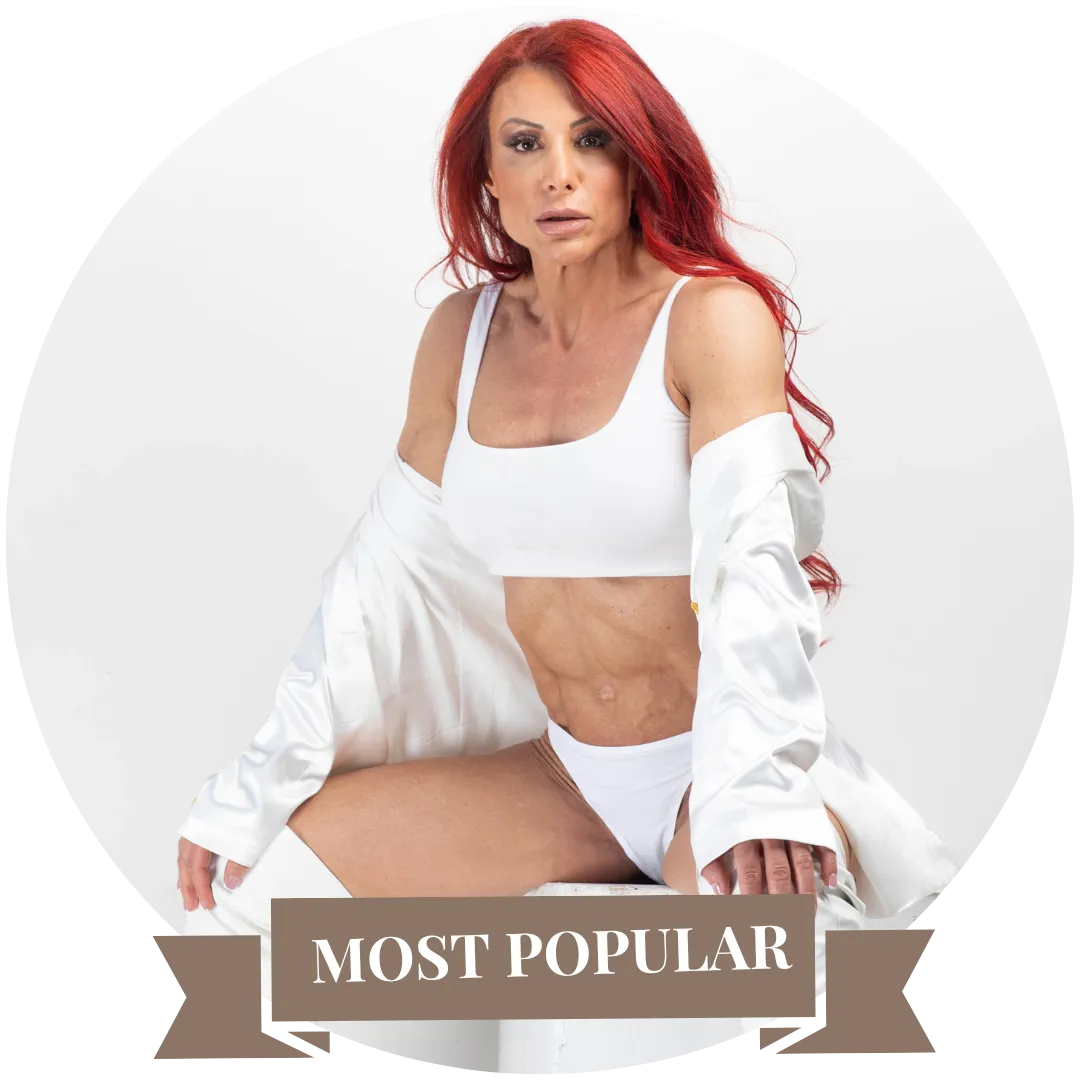
Strong & Sexy Program
Strong & Sexy is a program designed to help women achieve their ideal body composition, while also improving their strength and overall health.
The program includes a comprehensive nutrition plan, as well as customized workout routines that are tailored to each individual's goals and fitness level.

The Strong & Sexy Experience
The Strong and Sexy Experience is your transformational showcase. This is an in-person weekend with Nancy, her team and a collection of the most dedicated women after completing their strong and sexy programs This weekend includes a luxury stay, hair, make-up, photoshoot, and more.
Don’t just earn your results, show them off in style.

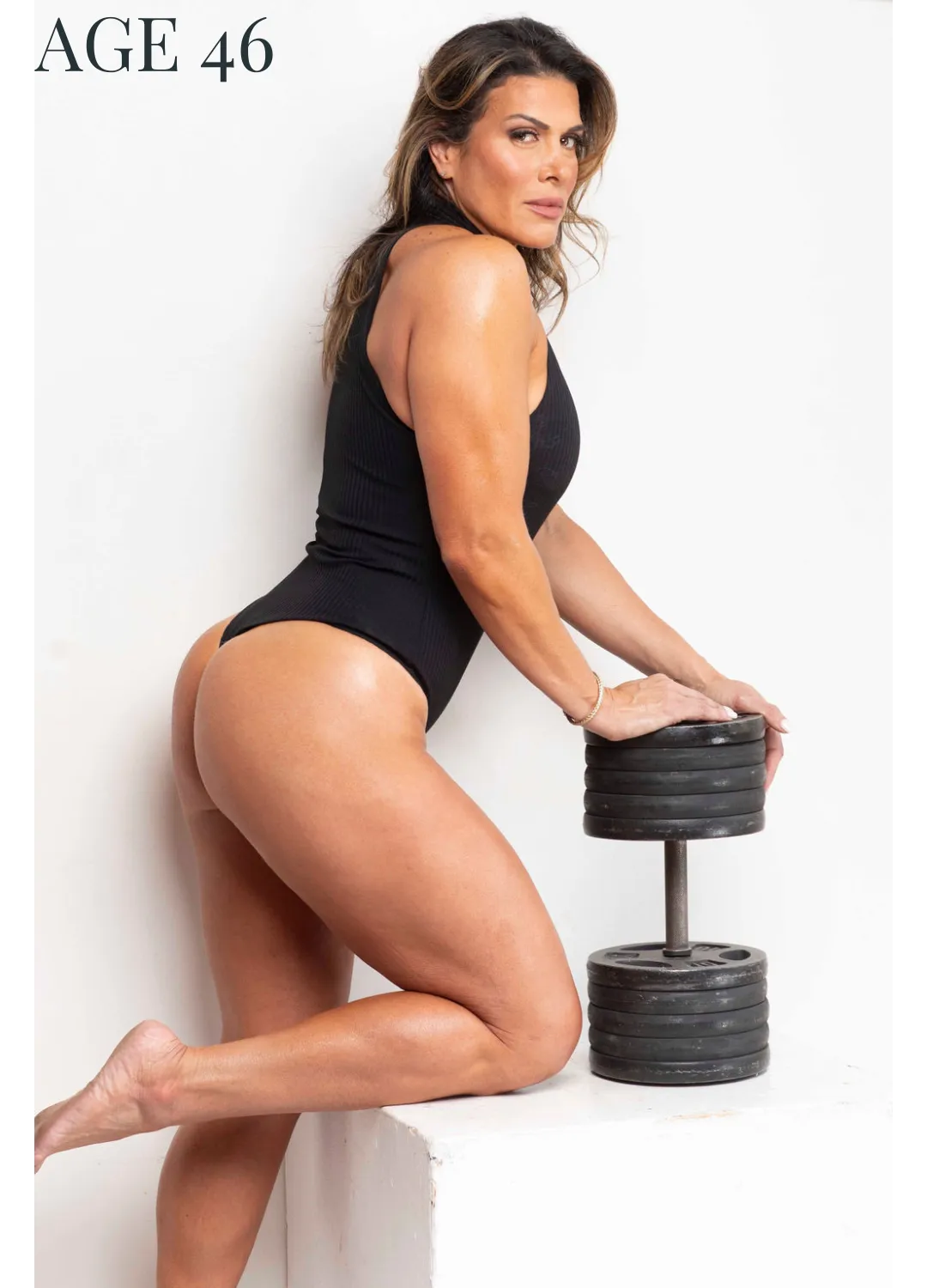
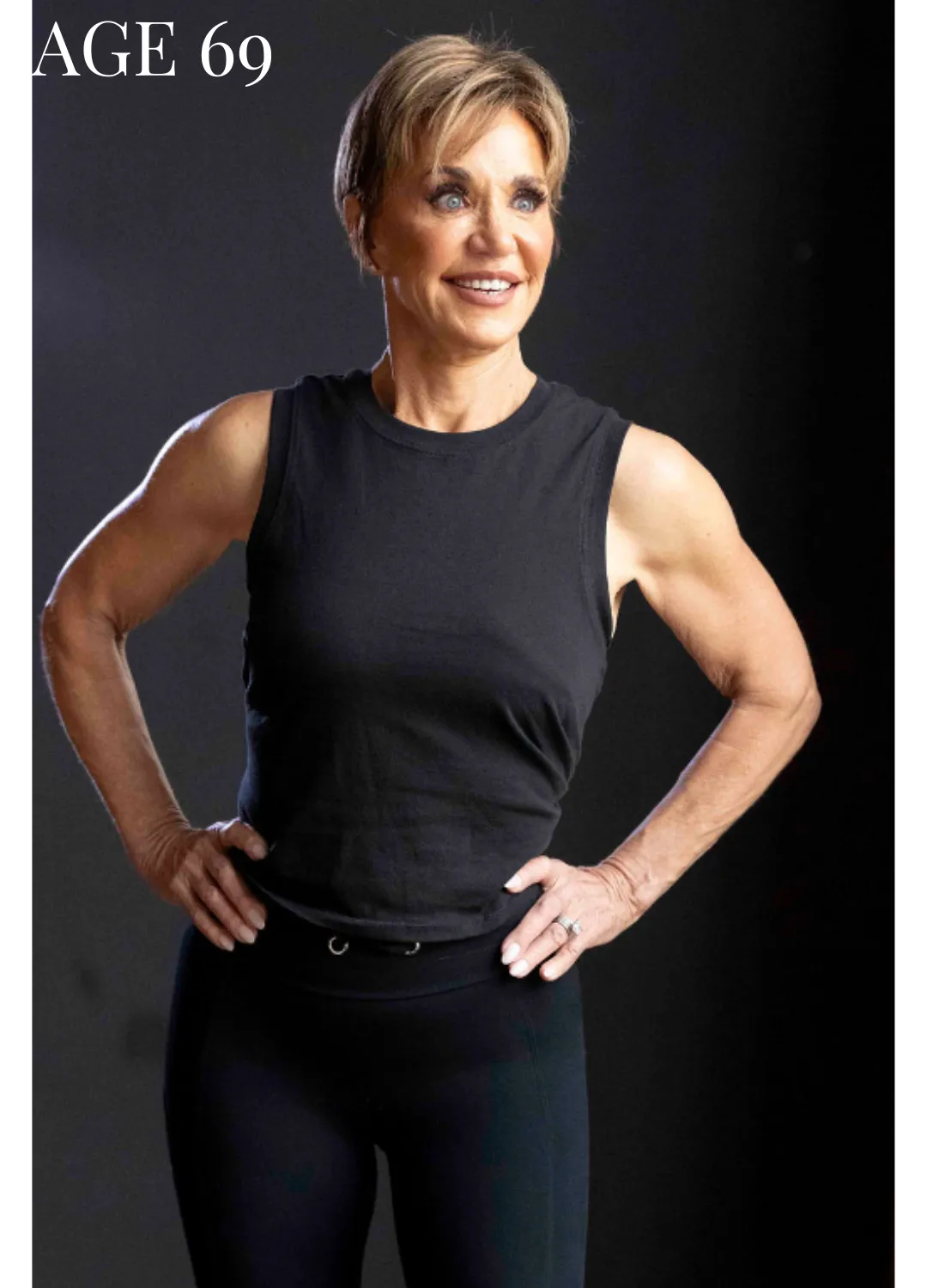
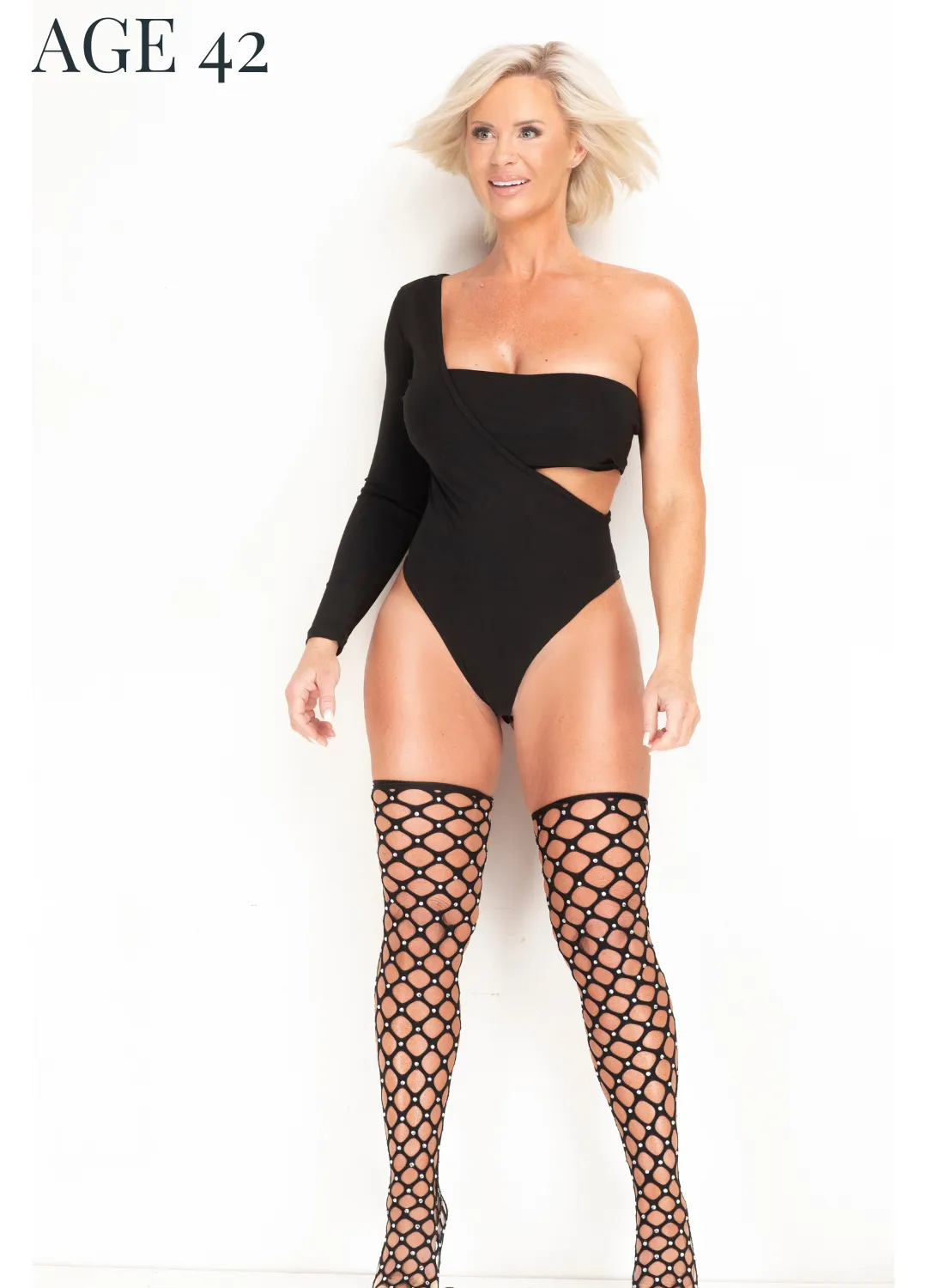
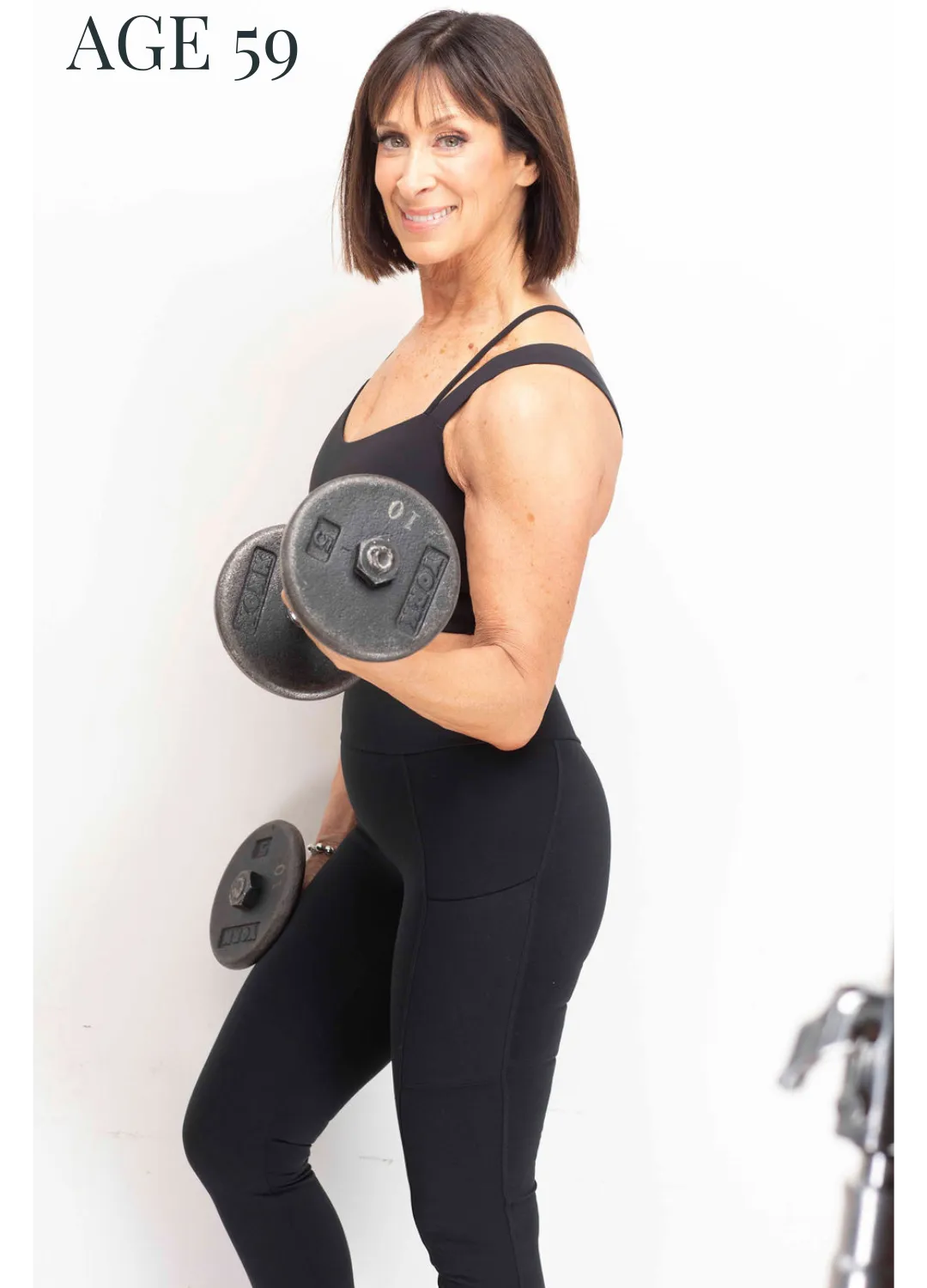
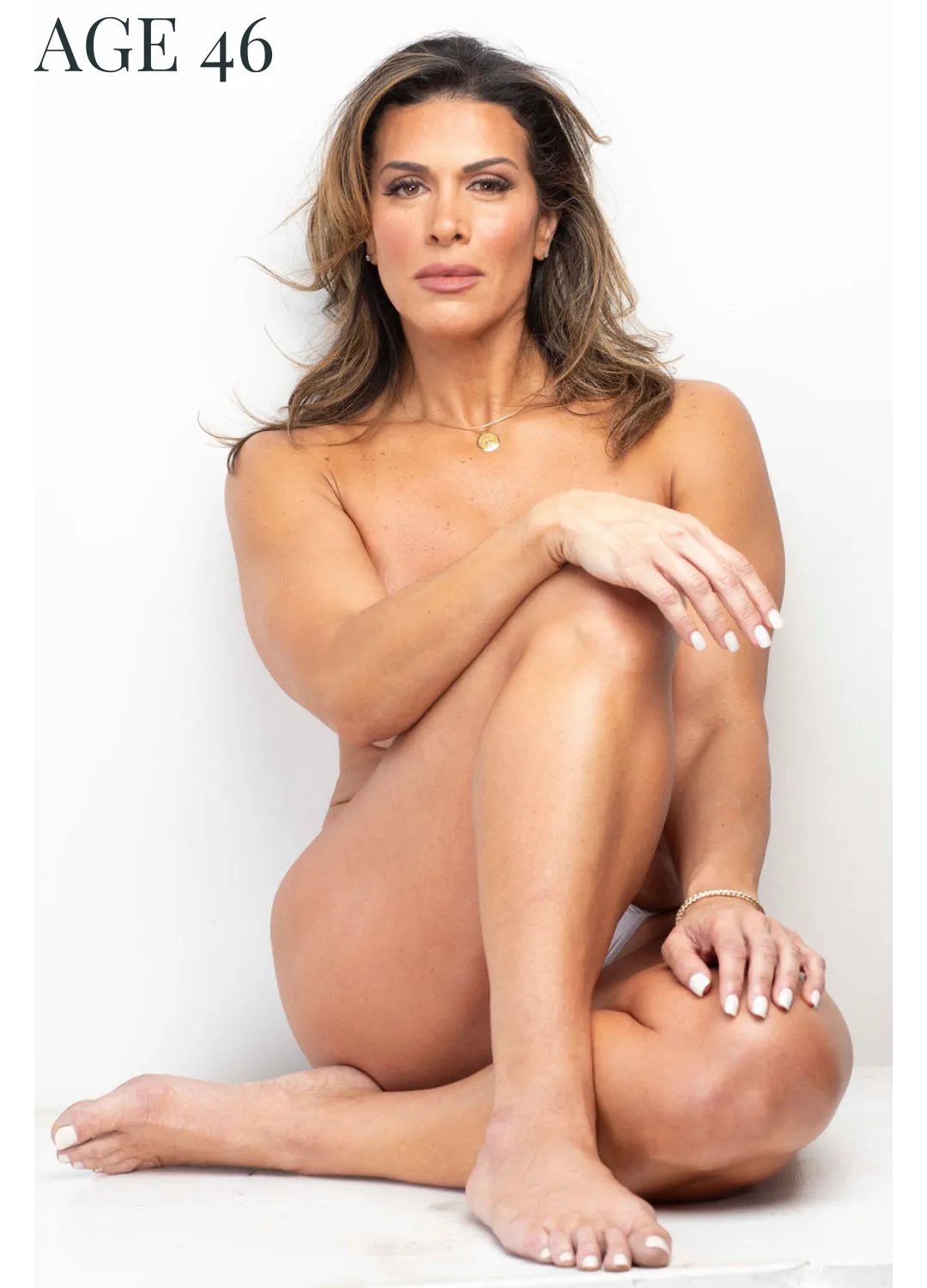
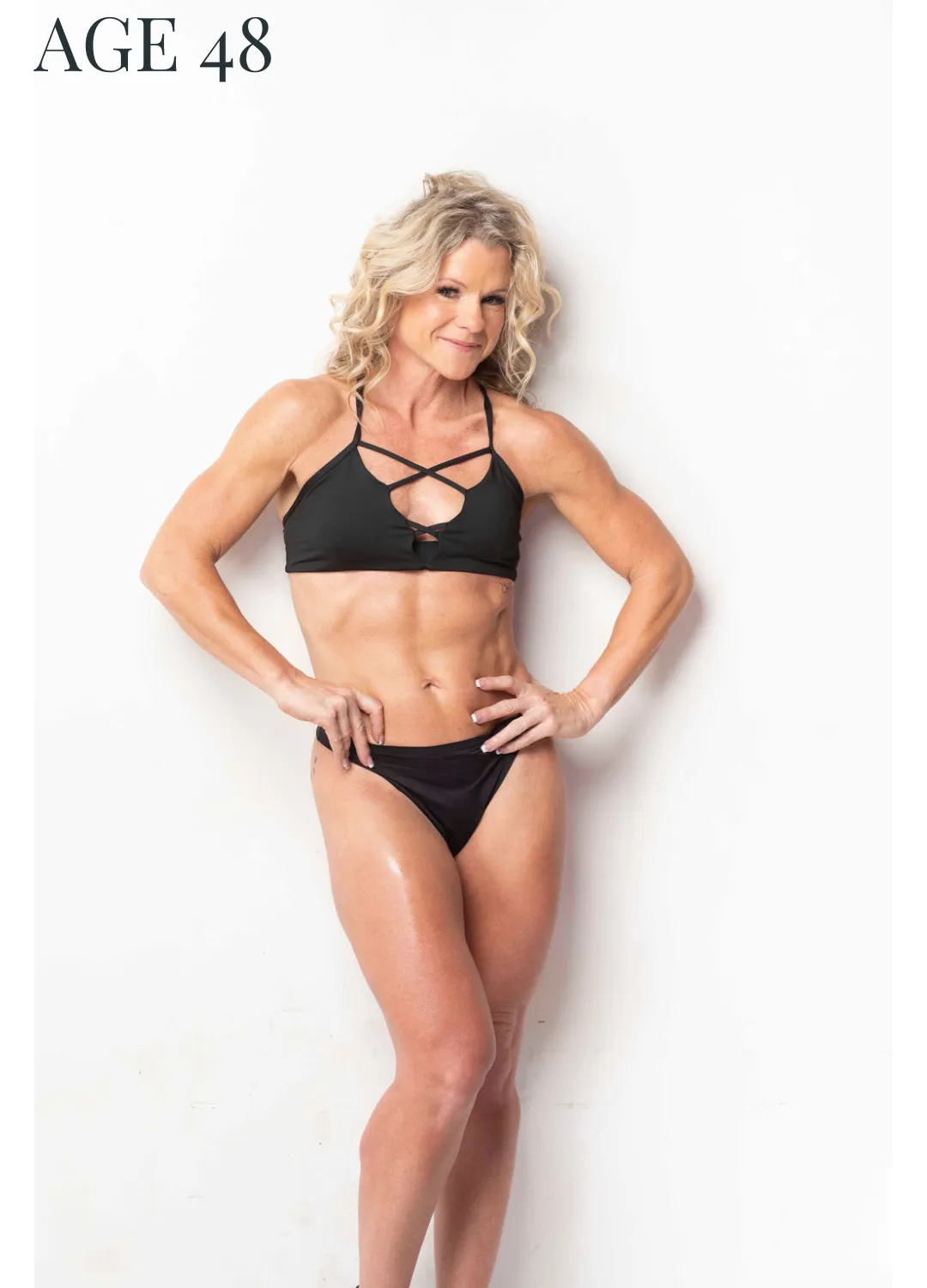
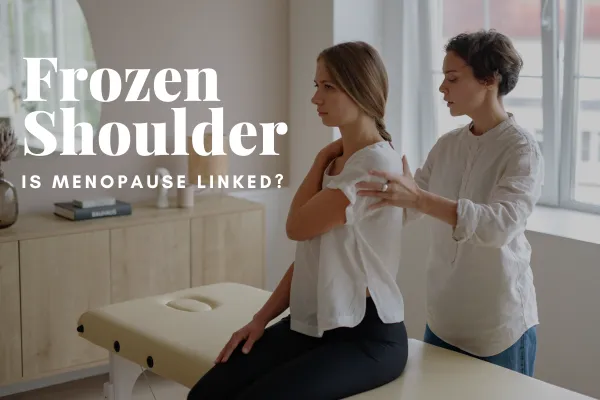
Frozen Shoulder After 40: The Hidden Link to Menopause and How to Prevent It
If your shoulder has suddenly started feeling stiff, painful, and hard to move, you’re not alone.
More and more women over 40 are being diagnosed with a condition known as adhesive capsulitis, or more commonly, frozen shoulder.
But what many don’t realize is that this frustrating and painful condition might not just be from injury or overuse... it could be tied to your hormones.
Emerging research and clinical experience are connecting the dots between hormone fluctuations and musculoskeletal conditions—especially frozen shoulder, plantar fasciitis, and tendonitis.
What Is Frozen Shoulder?
Frozen shoulder happens when the capsule of connective tissue surrounding your shoulder joint becomes inflamed and stiffens. As this capsule thickens and tightens, it restricts movement and causes chronic pain, especially when trying to raise or rotate your arm.
It typically progresses in three stages:
Freezing Stage: Pain increases, and your range of motion starts to decrease (lasts 6–9 months).
Frozen Stage: Pain may improve, but stiffness remains, making movement extremely difficult (4–12 months).
Thawing Stage: Shoulder mobility gradually improves (6 months to 2+ years).
Yes, frozen shoulder can last up to 3 years if left untreated.
Common Signs of Frozen Shoulder
Gradual onset of shoulder stiffness
Pain that worsens at night or when lying on the affected side
Difficulty lifting your arm overhead
Limited range of motion, even with assistance
Pain during everyday movements (reaching, driving, dressing, etc.)
Why Women Over 40 Are More at Risk
Hormonal Changes: Declining estrogen levels during perimenopause and menopause.
Sedentary Lifestyle: Lack of movement can exacerbate stiffness.
Underlying Conditions: Diabetes, thyroid disorders, and autoimmune diseases.
Here’s where things get interesting and overlooked...
Women are disproportionately affected by frozen shoulder, especially between the ages of 40 and 60.
But why?
The answer may lie in menopause and hormonal imbalance.
Historically, frozen shoulder has been linked to factors like injury, immobility, or underlying conditions like diabetes. But new research and leading voices in women’s health, like Dr. Mary Claire Haver and Dr. Vonda Wright, are bringing attention to a different root cause: hormonal shifts in perimenopause and menopause.
In fact, Dr. Haver has said:
“We see a spike in frozen shoulder cases in midlife women, and estrogen decline plays a significant role in connective tissue and joint health.”
Dr. Vonda Wright, an orthopedic surgeon specializing in aging athletes, also highlights how:
“Estrogen has a protective effect on collagen. Once estrogen starts to dip, so does the integrity of connective tissue—including the shoulder capsule.”
How Hormones Impact Frozen Shoulder
During perimenopause and menopause, estrogen levels begin to decline. Estrogen plays a major role in collagen production, tendon elasticity, joint lubrication, and inflammatory response.
When estrogen drops:
Tissues lose flexibility
Inflammation increases
Collagen degrades faster
Joint recovery slows down
Add in midlife stress, poor sleep, and nutrient deficiencies, and it’s no wonder the body starts sending warning signs through joints like the shoulder... even in women with no history of shoulder injury.
Is Frozen Shoulder Preventable?
In many cases, yes.
When you understand that frozen shoulder is heavily influenced by hormonal changes, you can take preventative measures before stiffness starts:
1. Balance Your Hormones
Supporting your hormonal health is non-negotiable during midlife. Key steps include:
Prioritizing sleep and recovery
Managing stress (high cortisol worsens inflammation)
Eating enough protein and healthy fats
Supporting your gut health (gut dysbiosis affects hormone clearance)
Considering bioidentical hormone therapy (under supervision)
2. Strength Train Smarter
Strength training keeps your joints mobile and your tissues resilient.
Avoid overtraining the front of your body (chest and front delts) and neglecting the posterior chain (rear delts, traps, rhomboids). This imbalance contributes to poor posture, shoulder impingement, and eventually, stiffness.
A well-structured resistance training program (with proper recovery) is one of the best ways to protect against frozen shoulder and joint degeneration.
Here’s why:
Improves blood flow to the shoulder capsule
Encourages synovial fluid production (aka joint lubrication)
Supports muscle balance and stability
Enhances recovery and collagen production
3. Don’t Skip Recovery
Recovery is where healing happens. Muscles and joints don’t get stronger from the workout—they get stronger after, if you give your body what it needs.
Focus on:
Proper sleep
Active rest days
Anti-inflammatory nutrition (omega-3s, leafy greens, turmeric, etc.)
Reducing processed sugar and alcohol (they worsen inflammation)
4. Address Shoulder Pain Early
The earlier you catch frozen shoulder, the better your outcome.
Warning signs to watch:
Gradual shoulder stiffness
Trouble putting on a bra or lifting items overhead
Nighttime shoulder pain
Reduced range of motion
5. Anti-Inflammatory Diet
Your diet matters more than ever. Inflammation is often the root cause of many midlife symptoms, and frozen shoulder is no exception.
What to Eat:
✔️ Colorful vegetables and leafy greens – loaded with antioxidants to fight oxidative stress
✔️ Berries – rich in polyphenols that help lower inflammation
✔️ Omega-3s – found in fatty fish like salmon, chia seeds, and walnuts; proven to reduce joint pain
✔️ Olive oil, avocado, nuts – healthy fats that support hormone production and reduce stiffness
✔️ Turmeric and ginger – powerful anti-inflammatory spices
✔️ High-quality protein – supports muscle repair and recovery, especially when paired with resistance training
What to Limit or Avoid:
✖️ Refined sugars – spike insulin and fuel inflammation
✖️ Highly processed foods – disrupt gut health and hormone function
✖️ Alcohol – increases cortisol, disrupts sleep, impairs recovery, and contributes to joint inflammation
✖️ Seed oils and trans fats – promote inflammatory pathways in the body
When combined with strength training, proper recovery, and (in some cases) bioidentical hormone therapy (BHRT), an anti-inflammatory diet becomes a critical pillar in preventing and managing frozen shoulder.
Listen to the Signs
Frozen shoulder isn’t just about your shoulder—it’s a full-body signal.
If you’re in midlife and feeling more joint pain, tightness, or discomfort creeping in… don’t ignore it. Your body is asking for a new strategy.
And yes, estrogen decline is natural—but muscle loss, chronic pain, and injury don’t have to be.
Frozen shoulder is more than a mechanical issue; it's a symptom of deeper hormonal changes occurring during midlife. By understanding the connection between menopause and your musculoskeletal health you can take proactive steps to prevent and manage this condition.
Want to Know What to Test for Hormonal Health?
If this hit home, and you're wondering whether HRT (or even just understanding your hormone levels) could help you prevent frozen shoulder, joint pain, and muscle loss…
I’ve created a quick guide that breaks down exactly what to test—so you can stop guessing and start taking action.
🧬 Click here to get my Hormone Lab Checklist
Know what to ask your doctor, what ranges to watch for, and how to get answers that actually help.
Because navigating menopause shouldn’t feel like a mystery.

Frozen Shoulder After 40: The Hidden Link to Menopause and How to Prevent It
If your shoulder has suddenly started feeling stiff, painful, and hard to move, you’re not alone.
More and more women over 40 are being diagnosed with a condition known as adhesive capsulitis, or more commonly, frozen shoulder.
But what many don’t realize is that this frustrating and painful condition might not just be from injury or overuse... it could be tied to your hormones.
Emerging research and clinical experience are connecting the dots between hormone fluctuations and musculoskeletal conditions—especially frozen shoulder, plantar fasciitis, and tendonitis.
What Is Frozen Shoulder?
Frozen shoulder happens when the capsule of connective tissue surrounding your shoulder joint becomes inflamed and stiffens. As this capsule thickens and tightens, it restricts movement and causes chronic pain, especially when trying to raise or rotate your arm.
It typically progresses in three stages:
Freezing Stage: Pain increases, and your range of motion starts to decrease (lasts 6–9 months).
Frozen Stage: Pain may improve, but stiffness remains, making movement extremely difficult (4–12 months).
Thawing Stage: Shoulder mobility gradually improves (6 months to 2+ years).
Yes, frozen shoulder can last up to 3 years if left untreated.
Common Signs of Frozen Shoulder
Gradual onset of shoulder stiffness
Pain that worsens at night or when lying on the affected side
Difficulty lifting your arm overhead
Limited range of motion, even with assistance
Pain during everyday movements (reaching, driving, dressing, etc.)
Why Women Over 40 Are More at Risk
Hormonal Changes: Declining estrogen levels during perimenopause and menopause.
Sedentary Lifestyle: Lack of movement can exacerbate stiffness.
Underlying Conditions: Diabetes, thyroid disorders, and autoimmune diseases.
Here’s where things get interesting and overlooked...
Women are disproportionately affected by frozen shoulder, especially between the ages of 40 and 60.
But why?
The answer may lie in menopause and hormonal imbalance.
Historically, frozen shoulder has been linked to factors like injury, immobility, or underlying conditions like diabetes. But new research and leading voices in women’s health, like Dr. Mary Claire Haver and Dr. Vonda Wright, are bringing attention to a different root cause: hormonal shifts in perimenopause and menopause.
In fact, Dr. Haver has said:
“We see a spike in frozen shoulder cases in midlife women, and estrogen decline plays a significant role in connective tissue and joint health.”
Dr. Vonda Wright, an orthopedic surgeon specializing in aging athletes, also highlights how:
“Estrogen has a protective effect on collagen. Once estrogen starts to dip, so does the integrity of connective tissue—including the shoulder capsule.”
How Hormones Impact Frozen Shoulder
During perimenopause and menopause, estrogen levels begin to decline. Estrogen plays a major role in collagen production, tendon elasticity, joint lubrication, and inflammatory response.
When estrogen drops:
Tissues lose flexibility
Inflammation increases
Collagen degrades faster
Joint recovery slows down
Add in midlife stress, poor sleep, and nutrient deficiencies, and it’s no wonder the body starts sending warning signs through joints like the shoulder... even in women with no history of shoulder injury.
Is Frozen Shoulder Preventable?
In many cases, yes.
When you understand that frozen shoulder is heavily influenced by hormonal changes, you can take preventative measures before stiffness starts:
1. Balance Your Hormones
Supporting your hormonal health is non-negotiable during midlife. Key steps include:
Prioritizing sleep and recovery
Managing stress (high cortisol worsens inflammation)
Eating enough protein and healthy fats
Supporting your gut health (gut dysbiosis affects hormone clearance)
Considering bioidentical hormone therapy (under supervision)
2. Strength Train Smarter
Strength training keeps your joints mobile and your tissues resilient.
Avoid overtraining the front of your body (chest and front delts) and neglecting the posterior chain (rear delts, traps, rhomboids). This imbalance contributes to poor posture, shoulder impingement, and eventually, stiffness.
A well-structured resistance training program (with proper recovery) is one of the best ways to protect against frozen shoulder and joint degeneration.
Here’s why:
Improves blood flow to the shoulder capsule
Encourages synovial fluid production (aka joint lubrication)
Supports muscle balance and stability
Enhances recovery and collagen production
3. Don’t Skip Recovery
Recovery is where healing happens. Muscles and joints don’t get stronger from the workout—they get stronger after, if you give your body what it needs.
Focus on:
Proper sleep
Active rest days
Anti-inflammatory nutrition (omega-3s, leafy greens, turmeric, etc.)
Reducing processed sugar and alcohol (they worsen inflammation)
4. Address Shoulder Pain Early
The earlier you catch frozen shoulder, the better your outcome.
Warning signs to watch:
Gradual shoulder stiffness
Trouble putting on a bra or lifting items overhead
Nighttime shoulder pain
Reduced range of motion
5. Anti-Inflammatory Diet
Your diet matters more than ever. Inflammation is often the root cause of many midlife symptoms, and frozen shoulder is no exception.
What to Eat:
✔️ Colorful vegetables and leafy greens – loaded with antioxidants to fight oxidative stress
✔️ Berries – rich in polyphenols that help lower inflammation
✔️ Omega-3s – found in fatty fish like salmon, chia seeds, and walnuts; proven to reduce joint pain
✔️ Olive oil, avocado, nuts – healthy fats that support hormone production and reduce stiffness
✔️ Turmeric and ginger – powerful anti-inflammatory spices
✔️ High-quality protein – supports muscle repair and recovery, especially when paired with resistance training
What to Limit or Avoid:
✖️ Refined sugars – spike insulin and fuel inflammation
✖️ Highly processed foods – disrupt gut health and hormone function
✖️ Alcohol – increases cortisol, disrupts sleep, impairs recovery, and contributes to joint inflammation
✖️ Seed oils and trans fats – promote inflammatory pathways in the body
When combined with strength training, proper recovery, and (in some cases) bioidentical hormone therapy (BHRT), an anti-inflammatory diet becomes a critical pillar in preventing and managing frozen shoulder.
Listen to the Signs
Frozen shoulder isn’t just about your shoulder—it’s a full-body signal.
If you’re in midlife and feeling more joint pain, tightness, or discomfort creeping in… don’t ignore it. Your body is asking for a new strategy.
And yes, estrogen decline is natural—but muscle loss, chronic pain, and injury don’t have to be.
Frozen shoulder is more than a mechanical issue; it's a symptom of deeper hormonal changes occurring during midlife. By understanding the connection between menopause and your musculoskeletal health you can take proactive steps to prevent and manage this condition.
Want to Know What to Test for Hormonal Health?
If this hit home, and you're wondering whether HRT (or even just understanding your hormone levels) could help you prevent frozen shoulder, joint pain, and muscle loss…
I’ve created a quick guide that breaks down exactly what to test—so you can stop guessing and start taking action.
🧬 Click here to get my Hormone Lab Checklist
Know what to ask your doctor, what ranges to watch for, and how to get answers that actually help.
Because navigating menopause shouldn’t feel like a mystery.

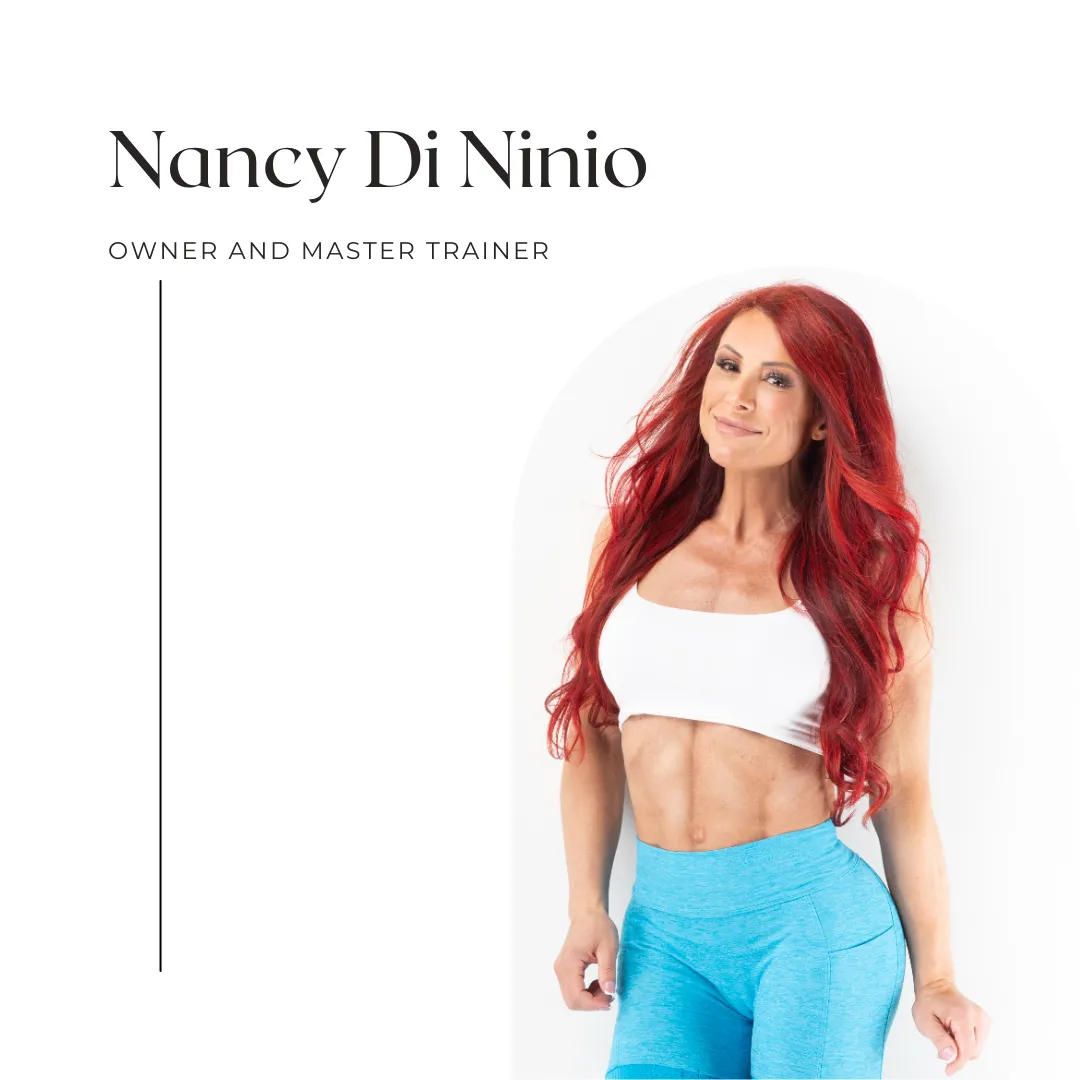
With over 25 years’ experience as a Personal Trainer her forte is teaching proper form and the anatomy of lifting using her own tried and true T3 Training Methods.
Being in her 50s she understands the needs of women’s health, hormones, nutrition and training in the over 40 years and the formula to age in reverse.
She is certified in Menopause Nutrition and Advanced Clinical Fat loss. Using a strong holistic approach to optimize healthy aging, her motto is “muscle is your prescription” to longevity. Muscle is medicine.Now she is on mission to impact women over 40 to look and feel their best by getting leaner and stronger with age and redefine societal perceptions around midlife and aging.
As a lifelong athlete she has graced the fitness stages as a National Level Figure Competitor and former world-class professional salsa dancer.
Her passion for fitness has led to an incredibly rewarding and diverse career in the international fitness, media and modeling industry; landing me features and covers for top publications like Forbes, Apple News, Oxygen, Muscle & Fitness Hers, and Iron Man Magazine.
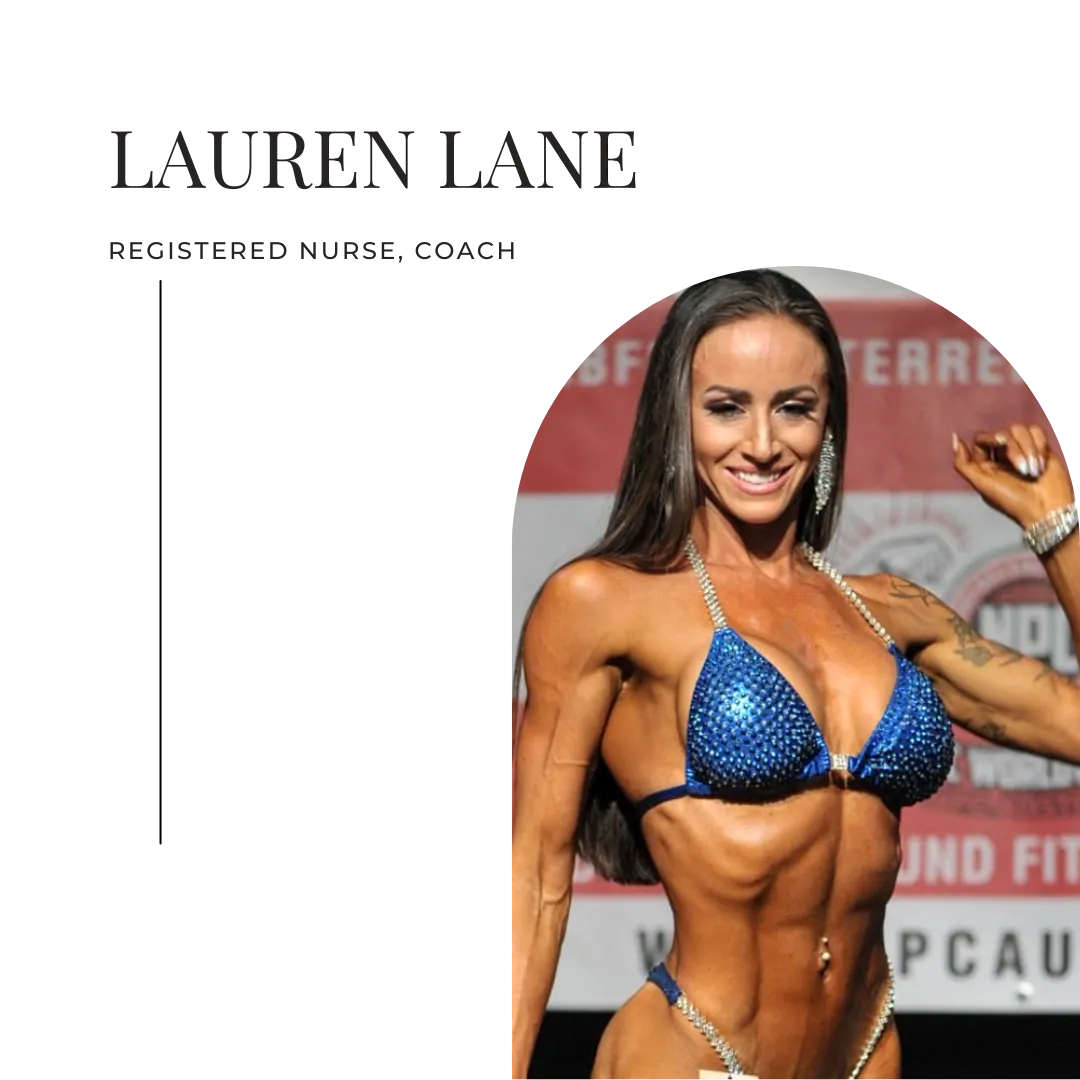
Lauren Lane is a Personal Trainer, Nutrition Coach, Registered Nurse, Mom and Bikini Competitor. Her academic background is primarily in Molecular Biology and Nursing, but her passion is in incorporating whole body health into the different seasons of life for herself and others.
She believes the proper knowledge, habits and a phenomenal team support system can change and save lives while helping women confidently get to the pinnacle of their fitness.
Everyone's journey and reasons are as unique as they are and she's looking forward to getting to know clients and being a part of the fit and confident years of their lives!
Lauren is a lifelong athlete of various sports and has been doing NPC Bikini Shows on and off since 2015 as a way to create goals in the gym and kitchen. Competitions were her personal gateway into functional health and weightlifting and she loves to share what she's learned.
Most recently she lived in Germany where she competed in NPC Worldwide Pro-Qualifiers and the Olympia Amateur Circuit. She's your go-to-gal for all things show day and posing. But, also your hype-squad and motivator for any body goals you're trying to accomplish!

Lee Ann Buttery is a distinguished Licensed Esthetician for over 13 years and a Health Coach/Holistic Nutritionist for nearly 5 years.
She integrates her expertise in both skincare and nutrition to help her clients achieve optimal skin health and wellness.
With a strong holistic approach, she has addressed a gamut of issues such as aging skin to helping clients lose weight and manage autoimmune disease.
She obtained a certificate in plant-based nutrition from Cornell University and is currently a PhD candidate in Holistic Nutrition. As her knowledge in this field expanded, Lee Ann has now shifted her approach to more Primal/Animal-based
Nutrition.
Her brand has been featured in three issues of British VOGUE magazine Conde Nast Traveller and Glamour UK. Lee Ann was also interviewed on FOX Sports discussing weight loss and inflammation.

Jennifer, a seasoned business owner with over 32 years of experience, brings her expertise in operations to NDF. Her background spans information technology, sales, nutrition, and fitness.
As a Certified Personal Trainer since 2004, specializing in Women's Health and Fitness, Jennifer owned and operated a successful prenatal and postpartum boot camp in Arizona, earning national recognition in 2010. She later opened a women's Crossfit studio, and at 50, competed in the NPC Bikini Masters Division, winning accolades.
At 60, Jennifer, a wife of 36 years, mother of three, and grandmother of two, understands the challenges women face with aging. Having personally overcome menopausal issues through tailored training, she now uses her knowledge to support other women in similar journeys at NDF.

Shana is a Personal Trainer, Nutrition Coach and Mother of 2 boys. Her love of fitness and nutrition brought her to competing in in both Figure and Bikini, which led to competing at a national level.
She believes proper nutrition is transformative and healing and loves to see her clients succeed in creating a healthy relationship with food and fitness.
Shana’s passion for growth and learning is what keeps her tuned into her clients as well as her insight gained over 15 years being certified. Shana is ready to support you with all your goals and will be your biggest cheerleader and advocate along your journey.

Andrea Belasco has over 16 years in customer service. She brings invaluable expertise to our operations.
Her journey from corporate to entrepreneurship fuels her passion for supporting businesses and entrepreneurs to thrive.
Andrea's dedication, reliability, and hustle ensure that tasks are completed efficiently and effectively. She runs the behind-the-scenes, making sure everything runs smoothly for our members' success.
At NDF, Andrea is dedicated to helping you achieve your health and fitness goals with her exceptional organizational skills and commitment to excellence.

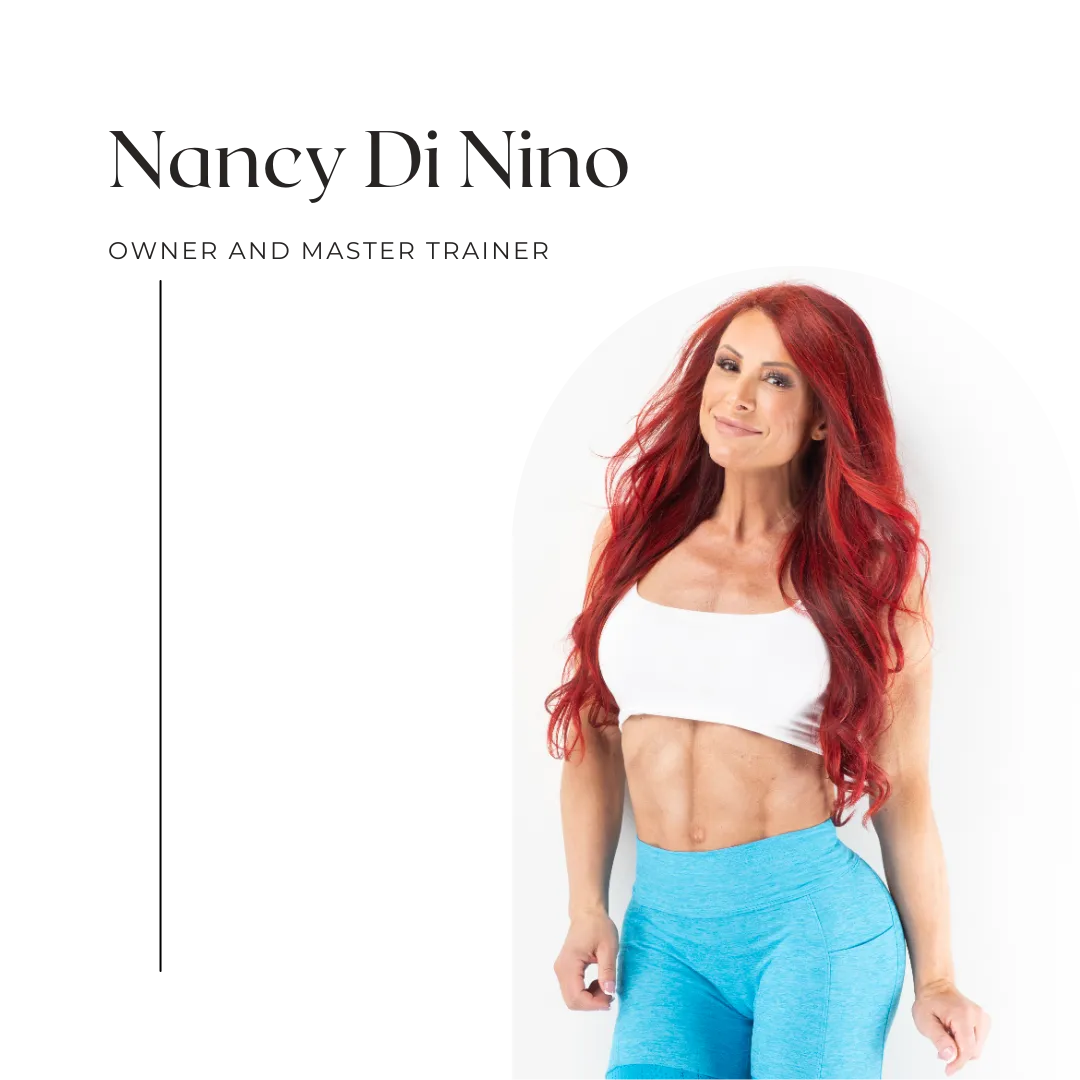
With over 25 years’ experience as a Personal Trainer her forte is teaching proper form and the anatomy of lifting using her own tried and true T3 Training Methods.
Being in her 50s she understands the needs of women’s health, hormones, nutrition and training in the over 40 years and the formula to age in reverse.
She is certified in Menopause Nutrition and Advanced Clinical Fat loss. Using a strong holistic approach to optimize healthy aging, her motto is “muscle is your prescription” to longevity.
Muscle is medicine. Now she is on mission to impact women over 40 to look and feel their best by getting leaner and stronger with age and redefine societal perceptions around midlife and aging.
As a lifelong athlete she has graced the fitness stages as a National Level Figure Competitor and former world-class professional salsa dancer.
Her passion for fitness has led to an incredibly rewarding and diverse career in the international fitness, media and modeling industry; landing me features and covers for top publications like Forbes, Apple News, Oxygen, Muscle & Fitness Hers, and Iron Man Magazine.
Jennifer, a seasoned business owner with over 32 years of experience, brings her expertise in operations to NDF. Her background spans information technology, sales, nutrition, and fitness.
As a Certified Personal Trainer since 2004, specializing in Women's Health and Fitness, Jennifer owned and operated a successful prenatal and postpartum boot camp in Arizona, earning national recognition in 2010. She later opened a women's Crossfit studio, and at 50, competed in the NPC Bikini Masters Division, winning accolades.
At 60, Jennifer, a wife of 36 years, mother of three, and grandmother of two, understands the challenges women face with aging. Having personally overcome menopausal issues through tailored training, she now uses her knowledge to support other women in similar journeys at NDF.
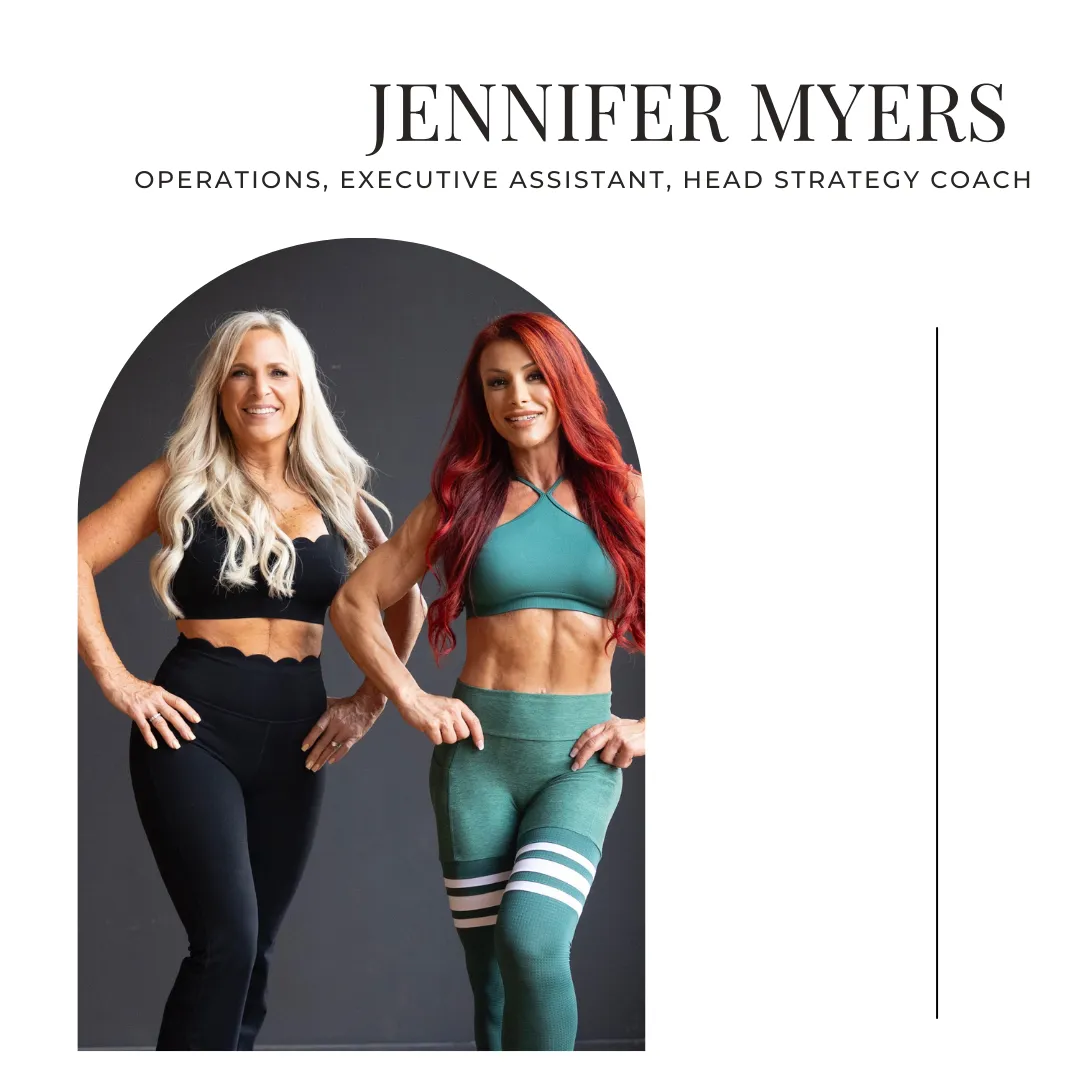
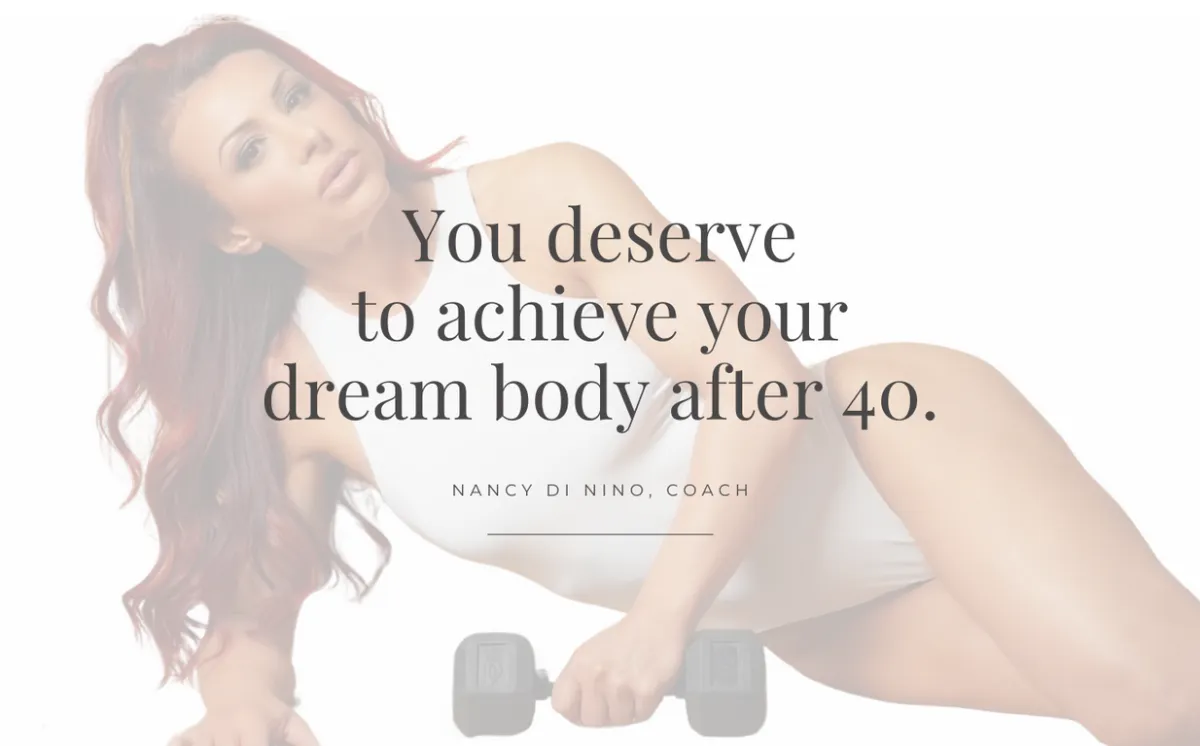


Am I too Old?
I am in my 50s! Are you kidding me. I know women and clients who are stronger and fitter than me now in their 60s and beyond. If you are approaching the 40 years or beyond and are a regular exerciser this may be EXACTLY what you need. After 35 we start to lose muscle mass and bones become weak so resistance training is crucial to maintain health and longevity. Muscle is medicine.

What does it Mean to be Future Proof?
It is the process where we teach your body to build LEAN MUSCLE AND HAVE A METABOLISM that never has to depend on a diet, restrictive plans or damn cardio! Age Proof is buidling a body that works for you for the rest of your life, having good joints, bones, skin and being able to carry groceries up the stairs beyond 65!

Are Nancy’s Program For Me?
Nancy’s programs are for women over 40 ( or approaching 40), approaching midlife and want to lose the final 10-15lbs (yes peri-menopause years!). This is for women who want to build lean strong feminine muscle, sexy curves and future proof your body. You must have some experience lifting weights, must be familiar with the gym, and have some knowledge of meal planning.

How do I Get Started?
Click the button below that says “Apply to work with Nancy.” Fill out the application and then book a call to speak with one of Nancy’s team members. The call will go over all the details and determine if you and Nancy & and her team are a good fit to work together,
